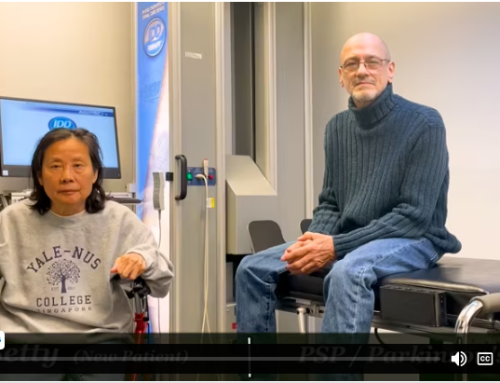Parkinson’s disease is a condition that is getting more and more common due to the increasing life expectancy in different countries around the world. There are many early signs that can show you have an increased risk of developing this condition or may already have it. This is specifically true if you have a family member with Parkinson’s disease. Being aware of the early signs allows you to seek medical help at an early stage. This increases your chances of slowing down the progression of the disease and having a long normal life despite of it.
Parkinson’s disease is a neurodegenerative disease which means that certain neural cells are damaged and lose their function of producing dopamine. Dopamine is very important in transmitting information, especially in parts of the brain responsible for balance and movement. The decreased amount of dopamine is the reason for the onset of the symptoms which in the beginning are quite mild. These are the most common early signs you may notice in yourself or in somebody close to you:
- Tremors at rest. This is perhaps the most common early sign. The tremor can be a very slight shaking of your thumb, chin or fingers. It is present when you are resting. However, you should not mistake it with shaking caused by excess physical activity, stress, injuries, and so on. It could also be caused by certain medicine you may be taking.
- Changes in handwriting. Usually, the handwriting style changes as the disease progresses, but some people have it in the very beginning. The stiffness in your muscles is the reason to have a small handwriting or micrographia. This is very common for patients with Parkinson’s disease. Of course, this is only true if you have had handwriting significantly different than the one you have now and only if the change is towards decreasing the size of the letters.
- Trouble sleeping. It is possible to have often difficulty falling asleep or sudden movements during sleep. The latter is usually noticed by the spouse, because these sudden movements can be quite disturbing for the person sleeping next to you. It is possible to often act out on your dreams while you are sleeping. This lack of rest while sleeping affects your days by draining your energy and feeling sleepy all day long afterwards. However, even if you have such nights it is not certain that Parkinson’s disease is the reason. This is worth attention only if it happens very often and affects your daily life.
- Loss of smell. Patients usually lose their ability to smell long before other symptoms are presented. If you can no longer smell foods such as licorice, bananas, and so on, then you might want to have a consultation with a doctor just to be certain. However, keep in mind that if you have flu, stuffy nose or a cold, then it is normal to not be able to smell anything for a certain period of time.
- Trouble walking and moving. Stiffness is very common for patients with Parkinson’s disease. Usually, body, arms and legs are rigid and movement is becoming more difficult. It is also possible that you no longer swing your arms while walking the way you used to do. You should consider consulting with a doctor if you have such stiffness, especially if it goes away once you have been moving for a while. Pain in hips and shoulders is also an early sign together with the stiffness in these areas. A common sentence patients use to describe their sensations is feeling their feet as if “they are stuck to the floor”.
- Constipation. Every person has constipation at certain moments in life. There are many reasons why this may be present such as lack of movement, unhealthy diet, certain drugs, lack of normal flora in the bowels, and more. If constipation is present for a very long time and it gets more severe with each day then you need to seek medical help.
- Masked face. This is usually a late symptom of Parkinson’s disease because it is caused by affecting the nerves responsible for the muscles in your face. Patients have an emotionless look on their face almost all of the time. This is commonly noticed by others who are close to the patient.
- Fainting. Dizziness when standing up from the bed or the chair can be caused by other conditions such as having low blood pressure, but it can also be caused by Parkinson’s disease.
- Hunching over. Patients often have difficulty standing straight and often lean forward when walking. Falling while walking is also possible.
- Fatigue. It is quite common for patients to always feel tired and have low energy.
- Sexual dysfunction. Male patients often have erectile dysfunction. Decreased desire for sexual activity is also common.
It is difficult to have effective measures for prevention because there are no certain causes for Parkinson’s disease. It is proved that certain genes and mutations are associated with the disease. However, it is possible to reduce the risk if you take a lot of caffeine from teas, coffee and cola, as well as have regular aerobic exercises each week. Paying attention and discovering the disease as early as possible is the best prevention possible at this moment.
Conventional treatment for Parkinson’s disease includes the intake of levodopa. This is a medicine that is broken down into dopamine when the brain is reached. This increases the amount of dopamine in the brain and reduces the severity of the symptoms. Currently, there is no cure for the disease. Levodopa has a lot of side effects when used regularly. Because of this, doctors avoid prescribing it until patients have very severe symptoms involving the movement and balance. We can help you find the root causes for the disease. We can help you slow down the progression by helping with the factors causing it. Finding professional medical help is essential for treating the condition while treating the root causes as well with our help.



